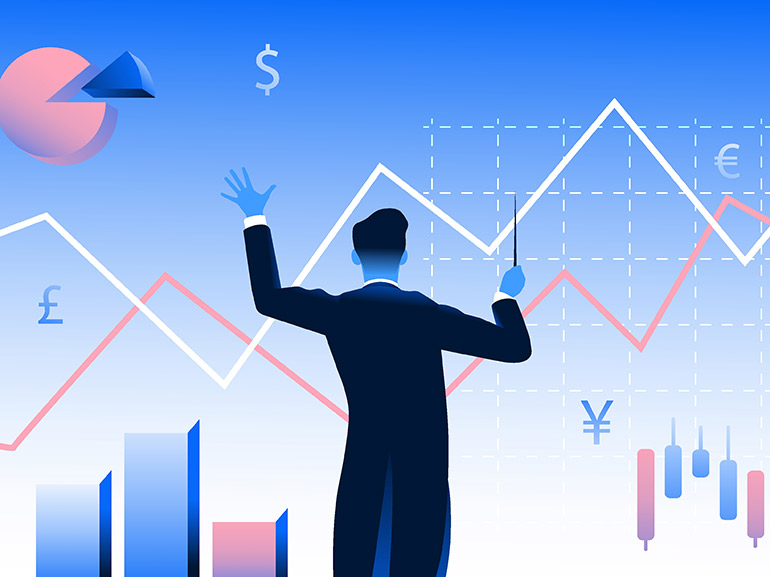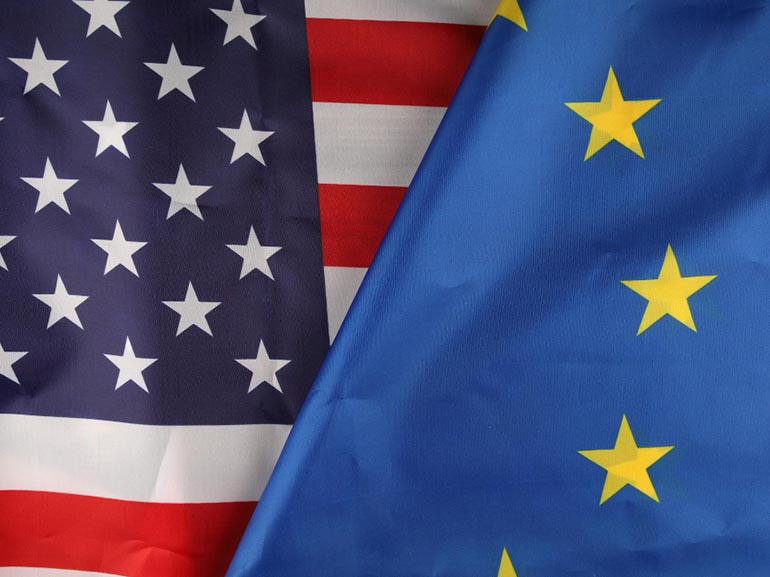Big Tech Stocks: What Are FAANG, MATANA & the Magnificent 7?
Meta, formerly known as Facebook, Amazon, Netflix, Apple, Alphabet, NVIDIA, and Tesla are considered some of the most renowned and popularly traded companies in the world.
Aside from being American and belonging to the tech sector, these companies have other commonalities and even share mutual acronyms- FAANG, MATANA, and Magnificent 7.
However, while FAANG and MATANA were popular terms in the past couple of years, more recently, some analysts and market watchers seem to have replaced them with Magnificent 7 stocks.
So what are FAANG, MATANA, and Magnificent 7 stocks exactly, and what are the differences between each term? Here’s what you need to know:

TL;DR: Key Takeaways
FAANG refers to five major tech stocks: Meta (Facebook), Amazon, Apple, Netflix, and Alphabet (Google)
MATANA replaces Netflix and Meta with Microsoft, Tesla, and NVIDIA, focusing on companies with emerging technology exposure
Magnificent 7 encompasses all seven leading tech giants: Meta, Apple, Netflix, Amazon, Alphabet, NVIDIA, and Microsoft
These groupings represent companies with substantial market capitalisation and significant influence on global markets
Traders can gain exposure through individual share CFDs or indices tracking these companies' collective performance
The evolution of these terms reflects changing market dynamics and technological innovation
What Does FAANG Mean?
FAANG stocks refer to five of the most popular tech shares in the world: Meta (formerly Facebook), Amazon, Apple, Netflix, and Alphabet (Google). Before the mid-2010s, the acronym was actually "FANG" and did not include Apple. Investors later popularised Apple's inclusion, transforming it into FAANG.
These stocks were chosen because they generated significant market interest and were considered high-growth opportunities in the technology sector. (Source: Investopedia)
A Comprehensive Overview of All FAANG Companies
Meta (META)
Founded in the early 2000s, Meta (META), famously known as Facebook, is an online social media and social networking service company. Instagram, WhatsApp, and Oculus VR are amongst Meta's subsidiaries, with online advertising serving as its chief source of revenue.
The company rebranded from Facebook to Meta to reflect its strategic focus on the nascent Metaverse technology. Meta remains one of the world's most valuable companies by market capitalisation, valued in the trillions of dollars.
Amazon (AMZN)
Known as an e-commerce giant, Amazon (AMZN) was founded in the mid-1990s by Jeff Bezos. Whilst the company now sells retail goods, electronics, and operates cloud computing services, it started as an online bookshop and has grown exponentially to become one of the largest e-commerce retailers globally by revenue.
Amazon's business model has expanded significantly beyond retail, with Amazon Web Services (AWS) becoming a major revenue driver in cloud computing.
Apple (AAPL)
Famously known for its iPhones, Apple (AAPL) is a big tech company founded in the mid-1970s by Steve Jobs, Ronald Wayne, and Steve Wozniak. The California-based company is consistently ranked amongst the world's most valuable companies by market capitalisation, valued in the trillions of dollars.
Apple's ecosystem of products,including iPhones, iPads, MacBooks, and services,has created a loyal customer base and substantial recurring revenue streams.
Netflix (NFLX)
Netflix (NFLX) is a renowned online streaming service that provides subscribers with access to films and television programmes by subscription. The California-based streaming giant has navigated increased market competition from services like Disney+, Hulu, and HBO Max.
Economic headwinds, including inflation and changing consumer spending patterns, have also impacted the streaming sector. Despite these challenges, Netflix maintains a substantial global subscriber base and market capitalisation in the hundreds of billions.
Alphabet/Google (GOOG)
One of the world's most famous tech companies with the most widely used search engine, Google,operating under parent company Alphabet (GOOG), was founded in the late 1990s by Sergey Brin and Larry Page.
Whilst the company is most famous for its search engine, its services are multifaceted, offering online advertising, computer software, e-commerce, cloud computing, and quantum computing research. Alphabet consistently ranks amongst the world's largest companies by market capitalisation, valued in the trillions.
Who Originated the Term FANG Stocks?
While the term was undoubtedly popularised by Jim Cramer, a host on the CNBC TV show, ‘Mad Money,’ which covers interviews with companies’ executives to help people understand the market, Cramer credits the coining of this term to someone else. According to sources, it was Bob Lang, a trader, author, and co-portfolio manager of TheStreet's Action Alerts PLUS and Trifecta Stocks, who coined this term in 2013.
Why Are FAANG Stocks Important?
There's no question that FAANG stocks dominate both US and global markets, providing products and services used worldwide. These companies are famous for their remarkable growth trajectories, and their combined market capitalisation exceeds several trillion dollars, surpassing the GDP of major economies.
Consequently, these companies' share price movements can significantly impact the broader market, making them important barometers of technology sector health and investor sentiment.
Why Isn't Microsoft a FAANG Company?
With Microsoft being one of the world's biggest tech companies with an impressive market capitalisation exceeding $3 trillion, it might seem surprising that Microsoft isn't included amongst FAANG companies.
Microsoft's exclusion from FAANG can be attributed to when the term emerged, it primarily referred to relatively newer or more hyped companies in the technology sector. Microsoft, as an established tech giant, wasn't amongst those gaining significant momentum at that particular time.
What Does MATANA Stand For?
Essentially, MATANA and FAANG share similar companies with the extraction of Meta and Netflix, and the addition of Microsoft, Tesla, and NVIDIA. Accordingly, the acronym MATANA refers to considered prominent American tech companies. This term was highly popularised in the past year and analysts are even suggesting that it should replace FAANG. The term MATANA was introduced by Constellation Research Principal Analyst & Founder Ray Wang in 2022 in an interview.
A Comprehensive Overview of MATANA Companies
As mentioned, MATANA and FAANG share companies like Apple, Alphabet, and Amazon. However, MATANA's replacements reflect evolving technology trends:
Why Meta Was Replaced: According to Wang, Meta needed to evolve beyond advertising dependence, and uncertainty surrounding the company's strategic direction influenced the decision to replace it.
Why Netflix Was Replaced: Wang believes Netflix's subscription-based business model may face growth limitations compared to companies with more diversified revenue streams.
Why Microsoft, NVIDIA, and Tesla Were Added:
Microsoft (MSFT)
Microsoft's (MSFT) inclusion stems from its involvement in the Metaverse, gaming, and cloud computing sectors, areas positioned for substantial growth.
NVIDIA (NVDA)
Chip giant NVIDIA (NVDA) was added due to its significant contributions to artificial intelligence and high-performance computing, positioning it as critical infrastructure for emerging technologies.
Tesla (TSLA)
Tesla's (TSLA) inclusion reflects its leadership position in the electric vehicle sector and renewable energy technology.
Both Microsoft and NVIDIA experienced significant growth during periods of increased digital adoption. However, economic headwinds including higher interest rates and inflation have periodically impacted these companies, leading to hiring freezes or workforce reductions.
Tesla has also navigated production challenges and supply chain disruptions that have affected Tesla's share price. Nonetheless, all these companies remain significant market participants with substantial growth potential.
What Are the Magnificent Seven Stocks?
The Magnificent 7, or "Mag 7," is a relatively recent term describing seven of the economy's most leading stocks: Meta, Apple, Netflix, Amazon, Alphabet, NVIDIA, and Microsoft. This grouping represents the most comprehensive collection of mega-cap technology stocks, combining elements of both FAANG and MATANA whilst including all major players that significantly influence market indices like the S&P 500 and Nasdaq.
Trading FAANG, MATANA and Magnificent 7 with Plus500
Traders wishing to gain exposure to the price movements of FAANG, MATANA, and Magnificent 7 stocks can do so through multiple approaches:
Individual ShareStock CFDs
Trade Contracts for Difference (CFDs) on individual company shares, allowing traders to speculate on price movements without owning the underlying stocks.
Index CFDs
Trade CFDs on indices that track these stocks' collective performance, such as Plus500's Magnificent 7 Index (BMAGSI) CFDs, providing diversified exposure to all seven companies simultaneously.
Advantages of CFD Trading
Trading CFDs provides access to rising and falling stock prices without granting ownership. Additionally, CFDs are leveraged instruments, meaning both potential gains and losses can be amplified relative to the initial margin required.
To learn more about this trading approach, read our comprehensive guide: "What Is CFD Trading."
Trading Magnificent 7 Share CFDs in Extended Hours
Plus500 also offers extended trading before the market opens and after it closes on Magnificent 7 share CFDs, allowing traders to capture market movements beyond standard trading hours.
This enables traders to make the best out of key market events, news, and updates without having to wait for the market to open. To learn more about extended-hours trading, you can read our article titled “Extended Hours Trading Guide: Pre-Market & After-Hours.”
The Outlook for FAANG, MATANA & Magnificent 7 Stocks
Financial markets are inherently volatile, with numerous factors influencing growth trajectories. Whilst some of these companies have experienced challenges during economic uncertainty, their long-term prospects remain subjects of ongoing analysis.
Past performance provides no guarantee of future growth. Multiple factors, including geopolitical events, monetary policy decisions, economic cycles, technological disruption, and regulatory changes, can significantly impact these companies' performance.
Many of these stocks have demonstrated resilience and adaptability, but sustainability of any strength or recovery depends on evolving market conditions, competitive dynamics, and each company's ability to innovate and execute its strategic vision.
Conclusion
FAANG, MATANA, and the Magnificent 7 represent different ways of grouping the world's most influential technology companies. These groupings reflect the evolving nature of the technology sector and changing market dynamics.
Understanding these distinctions helps traders and investors recognise which companies are gaining prominence and why certain groupings resonate with market participants. Whether you're interested in established platforms like Meta and Amazon, innovative chip manufacturers like NVIDIA, or electric vehicle pioneers like Tesla, these groupings provide frameworks for understanding big tech's market influence.
For traders seeking exposure to these influential companies, Plus500 provides access through individual share CFDs and index products designed to track collective performance.
*Past performance does not reflect future results. The above are only projections and should not be taken as investment advice.
FAQs
What's the difference between FAANG, MATANA, and Magnificent 7?
FAANG includes Meta, Amazon, Apple, Netflix, and Alphabet. MATANA replaces Netflix and Meta with Microsoft, Tesla, and NVIDIA. The Magnificent 7 includes all seven major tech stocks: Meta, Apple, Netflix, Amazon, Alphabet, NVIDIA, and Microsoft, representing the most comprehensive grouping.
Which grouping is most relevant for traders today?
The Magnificent 7 has gained prominence as it encompasses the broadest range of influential tech companies. However, relevance depends on individual trading strategies and sector exposure preferences. Many analysts now reference Magnificent 7 when discussing mega-cap technology performance.
Can I trade all these stocks through Plus500?
Yes, Plus500 offers CFDs on all individual companies mentioned (Meta, Amazon, Apple, Netflix, Alphabet, Microsoft, Tesla, and NVIDIA), as well as the Magnificent 7 Index (BMAGSI), providing diversified exposure.
What are the features of trading tech stock CFDs?
CFD trading allows speculation on price movements in both directions without owning the underlying shares. CFDs offer leverage, enabling positions larger than the initial capital outlay, though this also amplifies potential losses. Additionally, CFD trading provides access to extended trading hours.
Why was the term FAANG replaced?
FAANG wasn't necessarily "replaced" but evolved. MATANA emerged to reflect companies with stronger exposure to emerging technologies like AI, electric vehicles, and cloud computing. The Magnificent 7 represents a more inclusive grouping combining both classifications.
How do interest rates affect these tech stocks?
Technology companies, particularly those valued based on future growth expectations, are sensitive to interest rate changes. Higher interest rates increase borrowing costs and make future earnings less valuable in present-value terms, potentially impacting valuations. Lower rates generally benefit growth stocks.
Are these stocks suitable for all traders?
These stocks can be volatile and may not suit all trading strategies or risk tolerances. They represent large-cap technology companies with substantial market influence. Traders should consider their individual circumstances, risk appetite, and trading objectives. Consider utilising Plus500's demo account to practise trading strategies.
What factors drive these tech stocks' performance?
Multiple factors influence performance, including earnings reports and guidance, product innovation and launches, regulatory developments, competitive dynamics, macroeconomic conditions, interest rate policies, and sector-specific trends like AI adoption or cloud computing growth.







